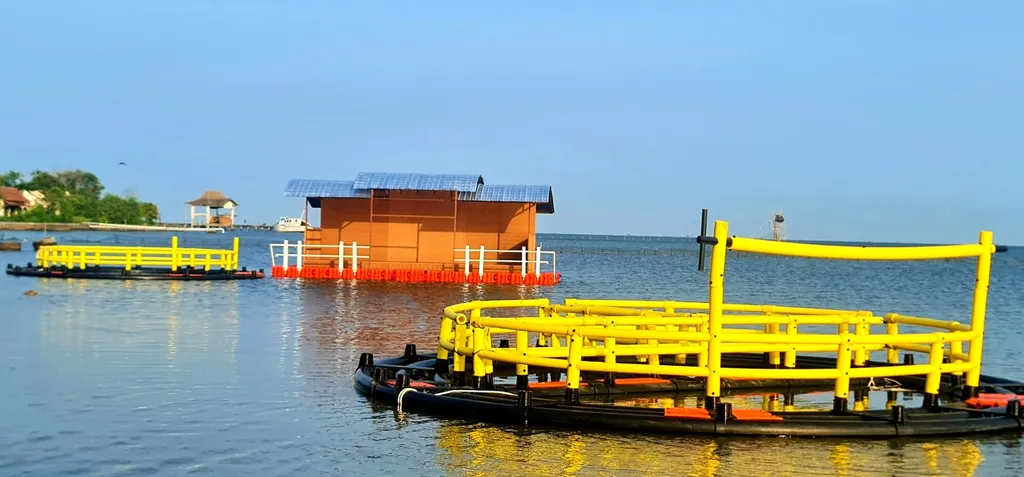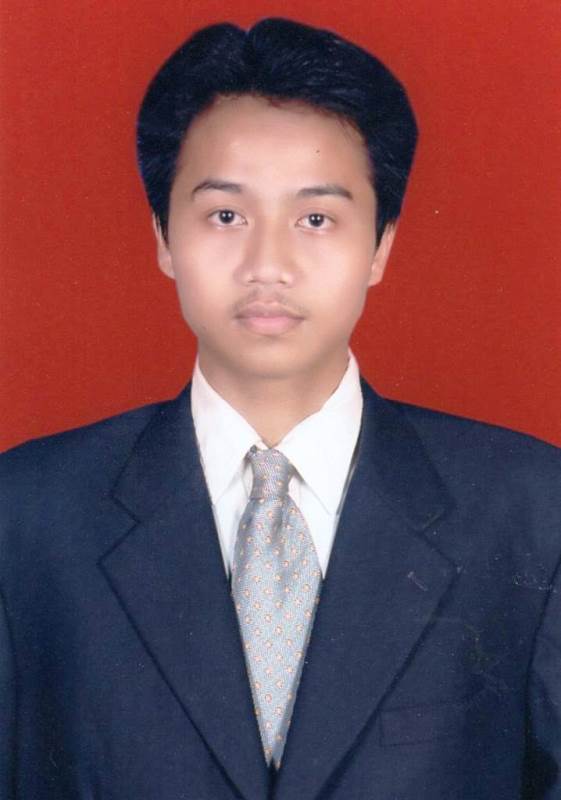Semarang, June 2025 – A lecturer from the Department of Biology, Diponegoro University (UNDIP), Prof. Sapto Purnomo Putro, through the Ce-MEBSA Research Cluster (Center of Marine Ecology and Biomonitoring for Sustainable Aquaculture), has developed an IoT-based smart dashboard system to support modern aquaculture. The system was tested on a tiered floating net cage platform (KJAB-IMTA), equipped with smart feeders, water quality sensors, and remotely operated underwater vehicles (ROVs). Initial results show significant improvements in fish growth, feed efficiency, and environmental quality compared to conventional methods.
The smart system consists of seven main modules: Smart Edu-Ecotourism, Integrated Smart Class, hybrid wind and solar power generation, Smart Market, Smart Security, IoT Monitoring for water and weather quality, and a Geoportal for Coastal Environment. Each module plays a crucial role in enhancing real-time data management and operational control—covering education, marketing, security, and ecological monitoring aspects.
:quality(80)/https://cdn-dam.kompas.id/images/2025/06/22/d389f704bb4e880b3d7127b768c0d84e-PHOTO_2025_06_22_20_22_06.jpg) Developed by Ce-MEBSA UNDIP, the smart dashboard system was designed to advance sustainable aquaculture practices through integrated technology and ecological awareness.
Developed by Ce-MEBSA UNDIP, the smart dashboard system was designed to advance sustainable aquaculture practices through integrated technology and ecological awareness.
One of the standout innovations is the Integrated Smart Class, a floating educational room equipped with smart TVs, streaming cameras, and supporting devices. This facility enables real-time monitoring of marine environmental conditions—such as current, temperature, pH, salinity, and dissolved oxygen—as well as live observations of aquatic life within the cages. According to the Head of UNDIP’s Biology Department, Dr. Sapto, the system serves not only as a research tool but also as a learning and training platform for students and local communities.
Pilot implementations of the KJAB-IMTA system have been conducted in various locations, including the Seribu Islands, Karimun, Karimunjawa, and Jepara. Early evaluations indicate that the system helps maintain water quality, reduces feed waste, and converts organic residue into nutrients for complementary commodities such as shellfish and seaweed. In addition, the technology provides new economic opportunities for coastal communities.
Prof. Sapto emphasizes that the success of this system demonstrates how ecological-based aquaculture modernization can be realized through strong collaboration among academics, industries, and coastal communities. With Indonesia’s vast aquaculture potential, this model is expected to become a key pillar of the country’s sustainable blue economy.
This article is based on a report published on Kompas.id entitled “Sistem Dasbor Pintar untuk Pengembangan Budidaya Perikanan Modern”, written by Sonya Hellen Sinombor and published on June 23, 2025.
Link: https://www.kompas.id/artikel/sistem-dasbor-pintar-untuk-pengembangan-budidaya-perikanan-modern


